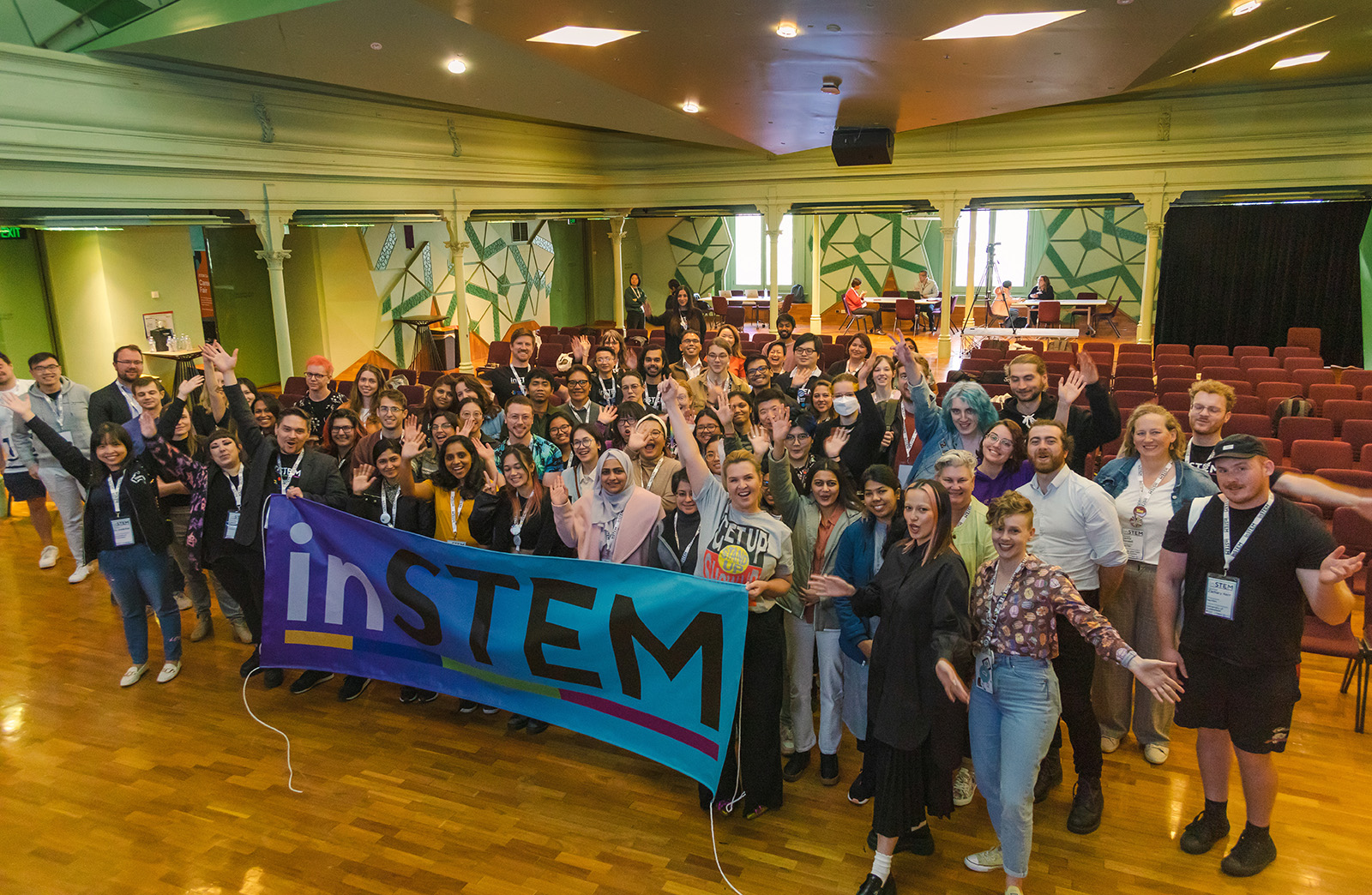Member development
In this section
inSTEM Conference
Championing diversity and inclusion at inSTEM 2023
A strong focus on disability, including neurodiversity, chronic illness and mental ill-health, marked an important evolution for the second edition of the inSTEM conference in September 2023.
A networking and career development conference for people from marginalised and underrepresented groups in STEM fields, inSTEM was held at RMIT University’s Storey Hall.
In addition to panel discussions and presentations, the conference included a sensory safe space and on-site counsellors to support attendees. This marked an important and timely step for equity and inclusion in STEM, with the introduction of legislation in April 2023 that sets out a code of practice for psychological safety in the workplace and puts a duty of care on workplaces to prevent psychological injury.
This focus on disability also highlighted the extent to which there is still much to learn (even for those from minority groups in STEM) about creating inclusive spaces for everyone, and considerable room for improvement in our workplaces.
This point was also emphasised through other key conference themes, including science communication and democratisation, and the importance of allies in creating meaningful change. Keynote speakers Dr Naomi Koh Belic (scientist, communicator and educator) and A/Prof. Alice Motion (Deputy Director, Sydney Nano Institute, and founder, Breaking Good) spoke about outreach activities they have facilitated, and the importance of centering minority voices and making science accessible to all.
Chris Lienert—leader of the Melbourne branch of Men Championing Change—was inspirational in his proactive approach to improving gender equity in tech and leadership as an ally.
All the sessions, and the Q&A from attendees, generated interesting and insightful discussions. This included an important, nuanced discussion on safe spaces and what it means to be inclusive.
A/Prof. Alice Motion spoke about outreach activities they have facilitated, and the importance of centering minority voices and making science accessible to all.
About inSTEM
inSTEM is an initiative of the STEM-focused ARC Centres of Excellence. It offers attendees a safe space where they can meet, make connections and build relationships with other researchers and research scholars. It also provides attendees the opportunity to learn from experts on topics and strategies that support career development and progression, and to participate in discussions on how to create change that improves access, supports retention and champions success in STEM for individuals from marginalised or underrepresented groups.
After a successful inaugural inSTEM conference in 2022, this year the ARC Centre of Excellence for Engineered Quantum Systems (EQUS) handed over the hosting reigns to the ARC Centre of Excellence for Transformative Meta-Optical Systems (TMOS).
In additional to EQUS and TMOS, eight other ARC Centres of Excellence were involved in 2023:
- All-Sky Astrophysics in Three Dimensions (ASTRO3D);
- Australian Biodiversity and Heritage (CABAH);
- Quantum Computation and Communication Technology (CQC2T);
- Innovations in Peptide and Protein Science (CIPPS);
- Dark Matter Particle Physics (CDM);
- Exciton Science;
- Future Low-Energy Electronics Technologies (FLEET);
- Gravitational-Wave Discovery (OzGrav).
This article was adapted from a story written by Kristen Harley of EQUS.

Attendees gathered for the inSTEM Conference at RMIT University's Storey Hall
Mentoring Program
In 2023, the Exciton Science Mentoring Program celebrated its fourth year, and continued to cultivate meaningful and innovative connections within the Centre. This year, the reach of the program was expanded, welcoming Partner Investigators, Associate Investigators, Centre alumni, and renowned professionals from outside the academic community.
The year marked a significant milestone as we transitioned back to normal operations post the disruptions caused by the COVID-19 pandemic. The resurgence of face-to-face interactions has been a welcome development, enhancing the mentorship experience and fostering stronger connections between mentors and mentees.
In response to the evolving needs of our Centre, particularly for our senior postdoctoral researchers, we introduced new mentoring pairings and considered adjustments to existing matches to ensure alignment with current research and professional pursuits. A comprehensive survey was distributed to better understand the specific needs, interests, and goals of our participants. The survey focused on their preferred professional fields, the type of advice they sought (academic versus industry), and the characteristics they valued in a mentor.
This approach underscores our commitment to providing a personalised and impactful mentoring experience. We remain dedicated to fostering the growth and development of our participants, ensuring they receive the support and guidance needed to achieve their academic and professional aspirations.
Exciton Science Seminars
Impact - Industry